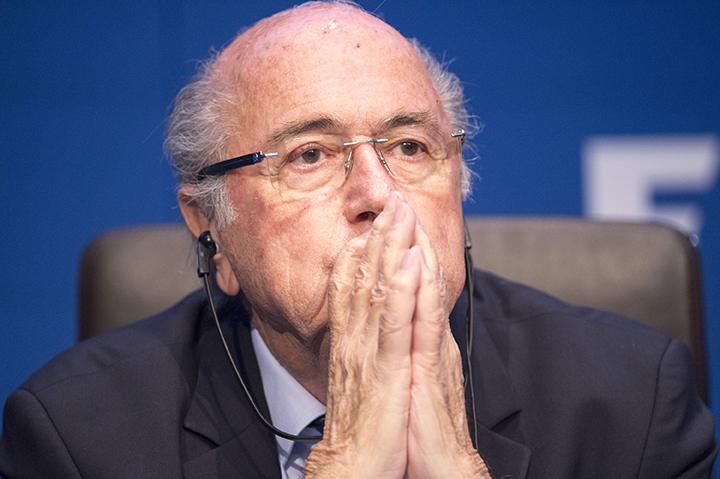After years of soccer vs. football jokes from the rest of the soccer-loving world, the United States stepped in to save Europe once again and indicted 14 Fédération Internationale de Football Association officials on corruption charges in an attempt to take some of the sport’s top leaders to court.
Nine officials were arrested on Wednesday by Swiss authorities for charges that include racketeering, wire fraud and a money laundering conspiracy. And because of the involvement of the United States Department of Justice, it’s probable that the FIFA officials might even be handed over to the United States thanks to the bilateral extradition treaty that stands between the two countries.
It’s all very dramatic, and the related 30 for 30 ESPN special practically writes itself. Still, not much is actually poised to change for soccer and its bribery problems in the long run based on this scandal alone.
The real end goal was to out Sepp Blatter, the almost-80-year-old in charge of soccer’s largest and most important governing body, and then restructure FIFA’s voting system so that corrupt men aren’t selling their corrupt votes for corrupt leaders or corrupt countries. It’s the only way to ensure the ongoing corruption is actually put to a stop.
The first step has already been taken. Though Blatter has been in charge of FIFA for what will be 17 years this June, the widening scandal blooming right under his nose pushed him to declare his resignation as FIFA’s president on Tuesday.
Because members must be given at least four months’ notice for a new election, the meeting won’t actually be held until sometime between December 2015 and March 2016. For now, this gives authorities more time to round up the worst of the big, bad FIFA criminals.
The next thing to fix is FIFA’s current voting system so the next Blatter isn’t elected after all the hard work done to push the original out of office.
No one likes Blatter. His name alone sounds like it could belong to a Disney villain. But in a system where all countries get one say, the president doesn’t have to be the most liked, just collect the most votes.
Essentially, a small country like Ghana then pulls the same weight as a larger one like Germany – a fact enforced by Blatter originally being re-elected to his fifth term in office before stepping down.
His opponent, Ali bin al-Hussein, scored a measly 73 votes to Blatter’s 133. The actual election was more a show of al-Hussein’s opposition than anything.
To repair this, FIFA needs a voting system that better represents its constituents. As it stands, FIFA is like the U.S. Senate, only instead of two representatives per state, it’s one vote per country. The system needs to be more like the House of Representatives, where each country’s votes reflect its population.
It’s not an immediate fix, and it’s guaranteed that some of the representatives of the larger countries are just as corrupt as Blatter. But the hope is that changing the system will help the new FIFA escape the manipulation over small countries and level the playing field for larger ones.
It’s not an easy road, nor is it a likely one. Though it may be the right way to fix the problems within FIFA, it’s a difficult choice to make tying up the passion for the sport with its politics.
All fans want at the end of the day is to sit down and know England will flop its way out of the cup again. And as angry as they may all be at the practices FIFA employs, there’s no question that billions across the world will still tune in to watch it happen.




